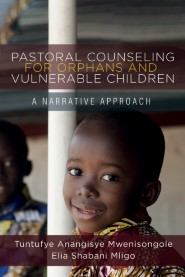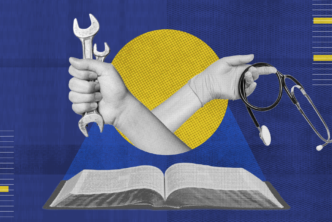The Bible identifies many groups of people close to God’s heart, but of tender importance to him are orphans:
Religion that is pure and undefiled before God the Father is this: to visit orphans and widows in their affliction, and to keep oneself unstained from the world. (Jas 1:27; see also Deut 10:18; Deut 14:24–28; Ps 68:5–6)
Today is Orphan Sunday—a day set aside for “Christians to stand for children who’ve lost the protection and care of [a] family.”1 As you read this excerpt from Fields of the Fatherless by Tom Davis, take a moment to pray for orphans in your community and ask God how you can love these children for whom God cares.
***
It shouldn’t surprise us that God would take direct action to ensure his intentions for the fatherless were carried out. God commanded his people to set aside a portion of their fields for the sole purpose of providing for this group. The line that designated this special area was called the ancient boundary. It created a field, figuratively and literally, in which the alien, orphan, or widow could find the provision necessary to survive.
You shall not pervert the justice due an alien or an orphan, nor take a widow’s garment in pledge. But you shall remember that you were a slave in Egypt, and that the LORD your God redeemed you from there; therefore I am commanding you to do this thing. When you reap your harvest in your field and have forgotten a sheaf in the field, you shall not go back to get it; it shall be for the alien, for the orphan, and for the widow, in order that the LORD your God may bless you in all the work of your hands. When you beat your olive tree, you shall not go over the boughs again; it shall be for the alien, for the orphan, and for the widow. When you gather the grapes of your vineyard, you shall not go over it again; it shall be for the alien, for the orphan, and for the widow. You shall remember that you were a slave in the land of Egypt; therefore I am commanding you to do this thing. (Deut 24:17–22 NASB)
This passage opens with a call to biblical justice. While that may not be a particularly popular topic for a Sunday sermon, God is very concerned with justice, specifically when it involves the lives of people who suffer. Here, justice means taking care of the physical needs of aliens, orphans, and widows. . . .
One of the best definitions of justice I’ve heard is implied by the definition of its opposite: evil. Edmund Burke, an eighteenth-century British philosopher, said this: “The definition of evil in the world is when good men and women see injustice and do nothing.” Here’s another way to look at it: When it comes to caring for the people on God’s heart, indifference is a sin.
. . .
What God was saying to the Israelites was simple: Harvest your fields without delay and enjoy the goodness you’ve worked hard for. But don’t think only of yourselves. You know all that excess you have lying around? The extra sheaves, the olives that remain on the trees, the grapes still on the vine? Leave that for the widow and orphan, and you’ll be blessed. This wasn’t just a passing thought, it was how God’s people were supposed to live their lives.
And it’s also how he wants us to live ours.
***
This post was adapted from Fields of the Fatherless by Tom Davis. To learn more about God’s heart for orphans, consider reading A Compassionate Call to Counter Culture in a World of Orphans and Widows, Orphan Justice, or Pastoral Counseling for Orphans and Vulnerable Children.
- Christian Alliance for Orphans. (2019). About – Christian Alliance for Orphans. [online] Available at: https://cafo.org/orphansunday/about/ [Accessed 1 Nov. 2019].






